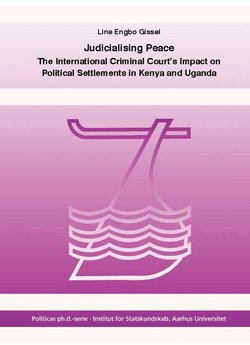Line Gissel
Judicialising Peace. The International Criminal Court’s Impact on Political Settlements in Kenya and Uganda

What happens to peace processes when their key actors are sought by international criminal tribunals? Do these new courts help or hinder the process of reaching a political settlement? These questions have become pertinent since the establishment of the International Criminal Court (ICC) in 2002. Equipped with a mandate to prosecute crimes against humanity, war crimes and genocide, this new and permanent court tends to become involved in situations of on-going conflict.
Analysing two peace processes in Kenya and Uganda, this dissertation argues that what matters to peace processes that experience an ICC intervention is the timing and level of ICC involvement as well as the interpretation of particular aspects of the Rome Statute by key ICC officials.
This argument centres on the notion of international legalisation. It derives from four analyses: A deconstruction of the idea of international justice that animates the ICC and its constituency; interpretive process analyses of the Juba Peace Talks between the Ugandan government and the Lord’s Resistance Army as well as the Kenya National Dialogue and Reconciliation following the 2008 post-election violence; and, lastly, an inductive comparison of these two peace processes.
![]() Ophavsretten tilhører Politica. Materialet må ikke bruges eller distribueres i kommercielt øjemed.
Ophavsretten tilhører Politica. Materialet må ikke bruges eller distribueres i kommercielt øjemed.